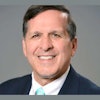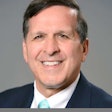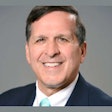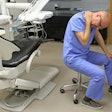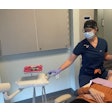
"I feel like I want to go to the office with a bag over my head," my client said to me. "I just don't like the burden of dentistry every day, and there's always so many issues to deal with. On top of that, getting my team -- if you can call them that -- to do what I ask them to do just wears me out."
He paused a few seconds, then continued. "Worse, I can't quit because I owe for my house, my practice, and my car, and both kids are in private schools. I feel stuck."
To one degree or another, most every dentist has felt these same feelings at some point -- and maybe more often than not. We are in a tough profession, and the demands of doing it all are mostly overwhelming. The effect that the number of roles we have to play interchangeably every day in our practices is often underestimated. The cumulative effect of five, 10, 20, or more years of this constant stress and strain can easily lead to feelings of burnout.
Yet, as my client said, "I can't quit."
Everyone's "story" is unique, but they all carry many same elements: fatigue, underperforming staff, production struggles, patient and/or staff relationship issues, boredom, lack of emotional support, and a feeling of inadequacy for leading a team or running a practice.
For most, the easy part is "doing the dentistry," meaning doing the procedures we all were trained to do. The hard part is, well, everything else!
Because each of us is unique, it is impossible to recommend a recipe for your particular situation. However, you can take certain actions to ward off or recover from feelings of burnout:
Get help! We dentists live isolated lives for the most part, and having someone to talk to who really understands us is often hard to find. Find someone who will listen without trying to solve your concerns or issues. Just being able to get it out of your head to verbalize it will do you wonders. Avoid trying to "fix" any woes, and avoid someone who wants to "fix" your woes with their advice and opinions. It will only serve as a temporary bandage.
Make a list of everything that's working and not working in your practice. You can do this with or without the help of your team. Assign a priority to each item that you feel needs the most attention, then come up with three (not two!) possible actions you could take to resolve the item. Finally, choose the one that you feel best to take action on first. Move on to the next one on your list until the list is cleared. Go easy on yourself -- this may take months or longer. If you need help, hire a professional to help you work through these things.
Every day, do at least one thing that nurtures your soul. Make another list -- this time of at least 10 items that feed your soul and make you feel connected to others, refreshed, or centered. Each day, do at least one of those items. How can you possibly help others, lead a team, and have the energy to do this long term unless you are taking care of your own needs?
Go back to school. No, not dental school -- life school. You know how to do enough dental procedures to take care of plenty of people, so learning new ones can wait for a while. Besides, I've never known anyone to get out of burnout or avoid it by learning how to do more dental procedures. What's the "life school" I'm talking about? Personal growth and development, or what we professional coaches call "Personal Foundation." Start choosing books that have less to do with "how tos" in business and more to do with "enjoying life." It's not frou-frou stuff; it's those same feelings that you're coming to the office with every day.
Quit tolerating. You put up with lots from many, many directions, and it can be so overwhelming you don't know where to even start to make changes. Action: Make a list of everything that you're putting up with in every area of your life, then decide what you need to do to get rid of it. It may be a staff member you need to let go, or hiring someone to paint your house, or firing that CPA who can't seem to communicate with you about your finances in a way you understand. You might have a long list or a shorter one; either way, handle the small, easy ones first. You'll create positive momentum, learn things about yourself along the way, and gain more energy so you can take corrective action on the bigger items.
Get exercise. Multiple studies show 30 minutes for something as simple as a walk is as effective as taking antidepressants. Exercise gets you breathing (do you ever tend to notice how you breathe in a shallow manner all day?), gets you in touch with your body, and gives you energy. It's also a great way to de-stress and clear your head -- or let your head work things out!
Your mother was right: Get eight hours of sleep. Please don't dismiss this! As simple as it sounds, sleep deprivation over long periods of time negatively affects your mind, body, and soul. You won't and can't think clearly, and you may find yourself on an emotional and energy rollercoaster when you substitute caffeine, sugars, and carbohydrates for a lack of energy -- or alcohol and other drugs to forget about the day.
The sky is not falling. Despite what you may read, the world won't end tomorrow. Even if it does, we're all in the same boat, and so what? You've come a long way and done very well to deserve these feelings of burnout and frustration! (I hope you at least smiled at that) You ARE successful, and you CAN make a "down" period in your career one of the most valuable learning opportunities you'll ever have.
Get back to these basics and create that momentum where you feel you see a way to a happy life. Above all, remember that knowledge without action is useless. I KNOW you can do it!
Dr. Deems is a professional personal and business coach to dentists and their teams and is a practicing dentist. Since 2005, he has been named to Dentistry Today's Top Leaders in Continuing Education and is the author of several books, the most recent titled The Dentist's Coach: Build a Vibrant Practice and the Life You Want. He can be reached at [email protected] or at 501-413-1101.



